In the animal world, vivid colors and intricate designs abound and easily catch our eyes. But one group of animals has managed to turn the simple black and white colors into one of the most recognizable and easily one of the most elegant design the: the zebras.
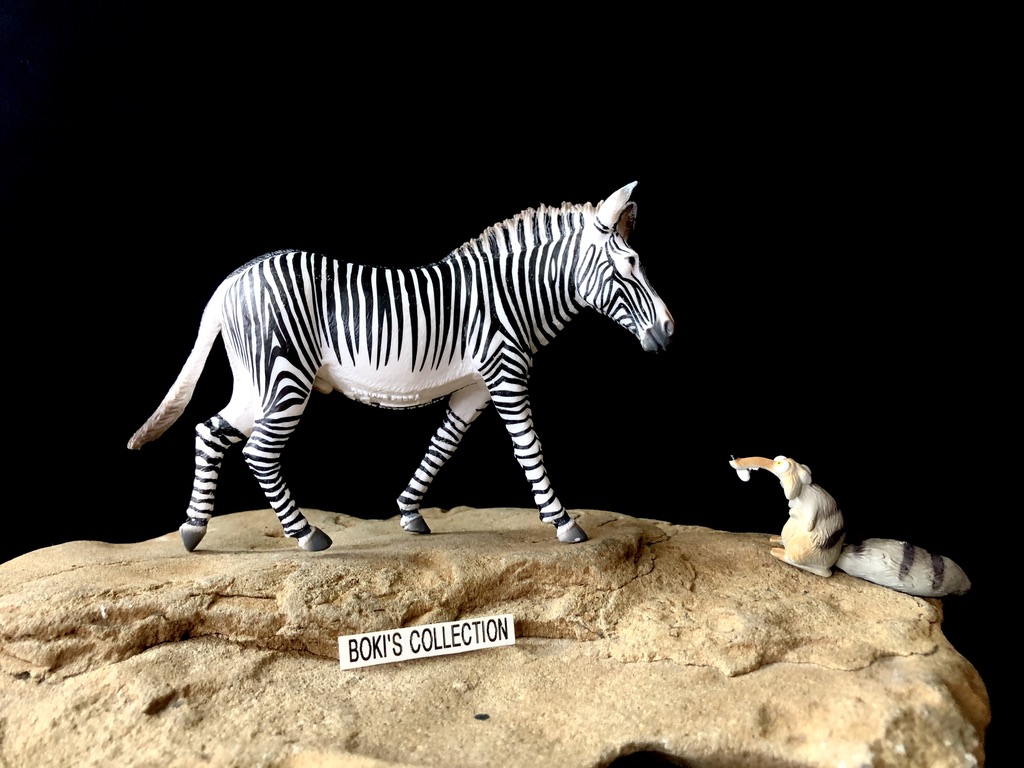
The zebra’s alternating black and white stripes is so iconic and distinctive, that they are one of the most popular and famous extant animals, in the wild and in captivity. Today, there are three species of zebras, the plains zebra (Equus quagga), the mountain zebra (E. zebra), and the subject of our review, Grevy’s zebra (E. grevyi) ,all found in Africa. Although at first glance they all look similar, the three extant species are distinct from each other.
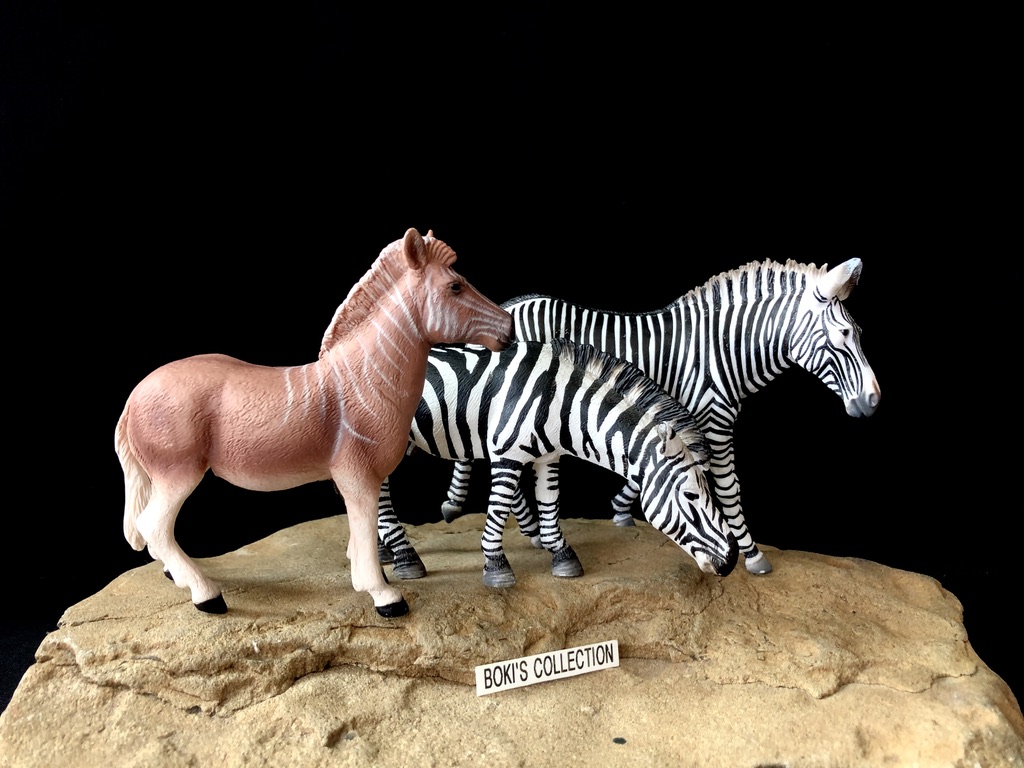
The iconic status of zebras has made them one of the most ubiquitous animals to be produced in toy form. The toy market is flooded with various zebra figures, but most are the most common species, the plains zebra. Once again, CollectA had chosen to give one zebra species a chance to shine on the spotlight and produced a beautiful figure of the Grevy’s. After all, if you are going to produce another zebra, why not make on that is a different species? With this release, all CollectA needs now is to produce the mountain zebra and they will have a complete zebra collection like no other!
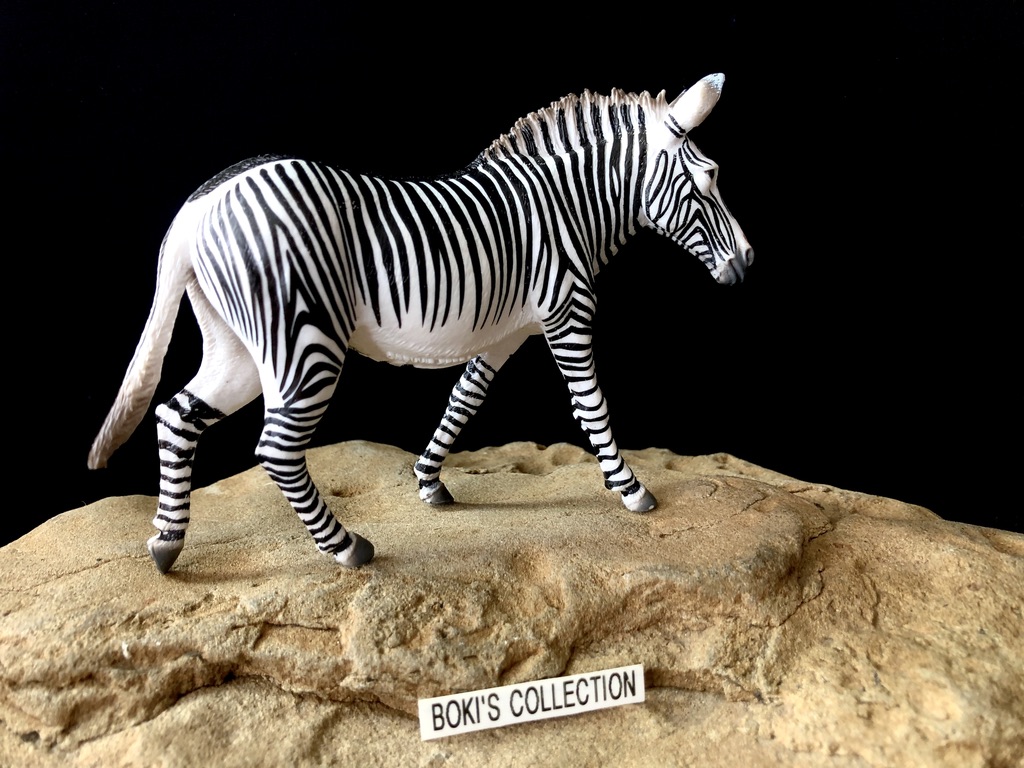
Grevy’s zebra is the largest of the trio and could reach a height of close to five feet at the shoulders. Appropriately, the figure is larger than most zebra figures out there. Besides its size, Grevy’s zebra’s stripes are distinctively narrower and close to each other compared to the other two species.
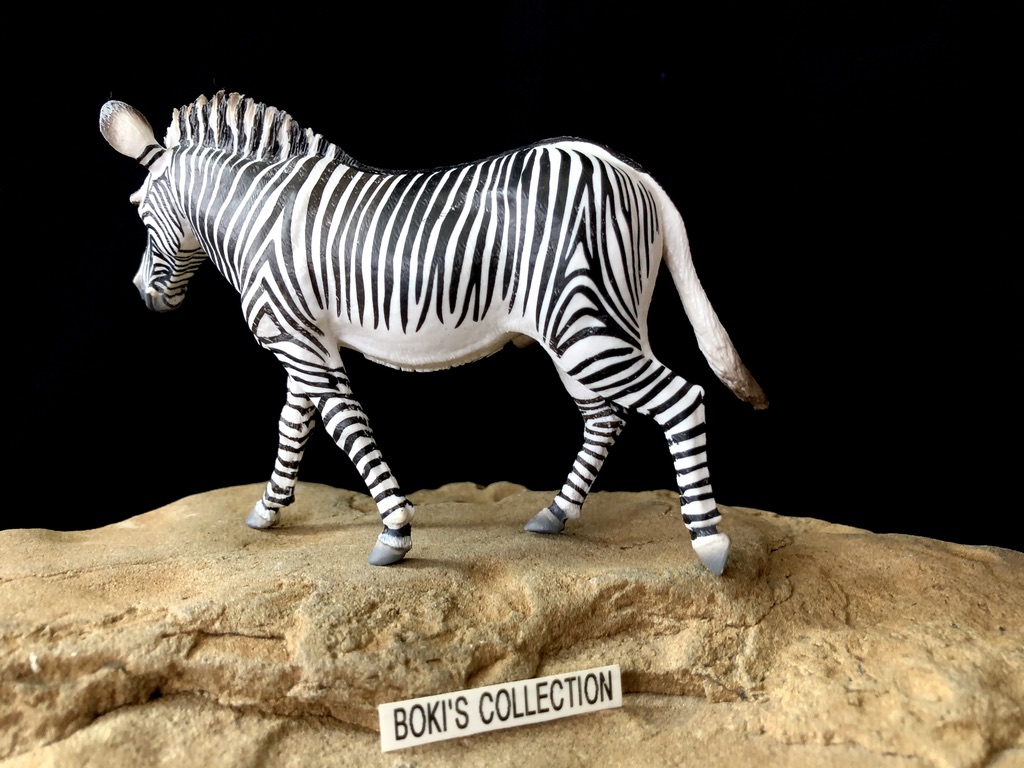
These strips are also unique in that they terminate just before they reach the underside belly area leaving this entire lower part white. There is also a distinctive rectangular-shaped area on the base of the tail that lacks stripes and is just white, while the stripes on the legs extend all the way down to the hooves.
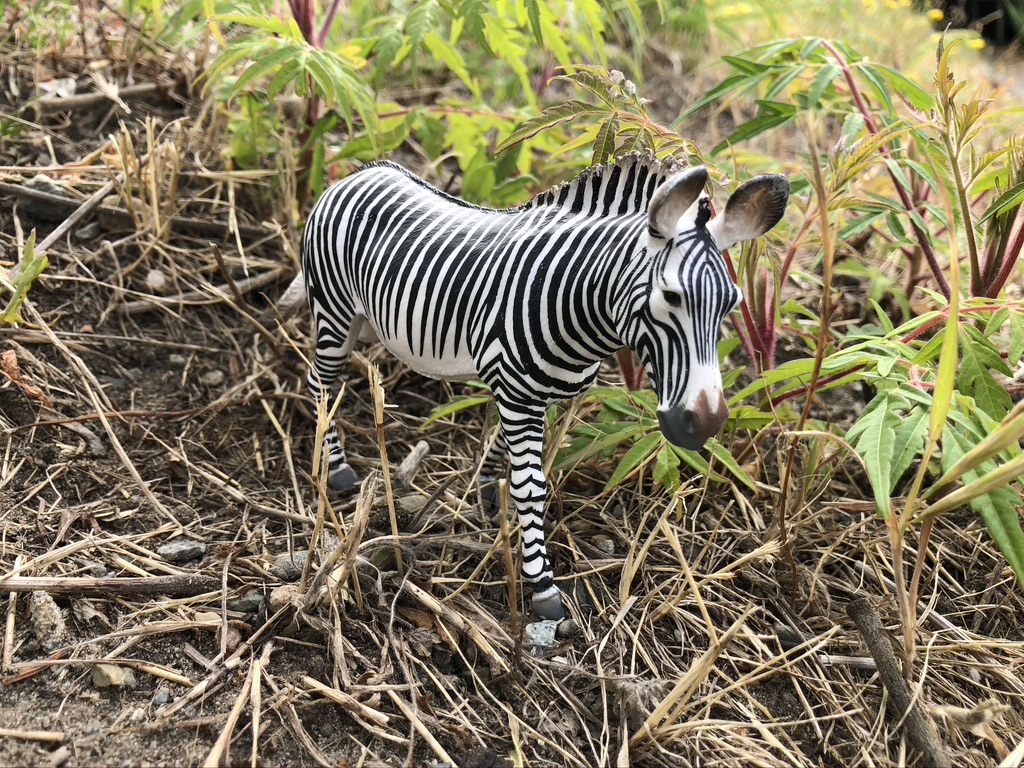
The figure captures these unique striping very well and you can clearly see where the black stripes terminate on the belly as well as the area around the base of the tail, leaving it all white. The stripes are also appropriately narrow and close to each other as they should. Unfortunately, as nicely as these stripes are done and painted, there is one big error on how they are done on the back end of the figure.
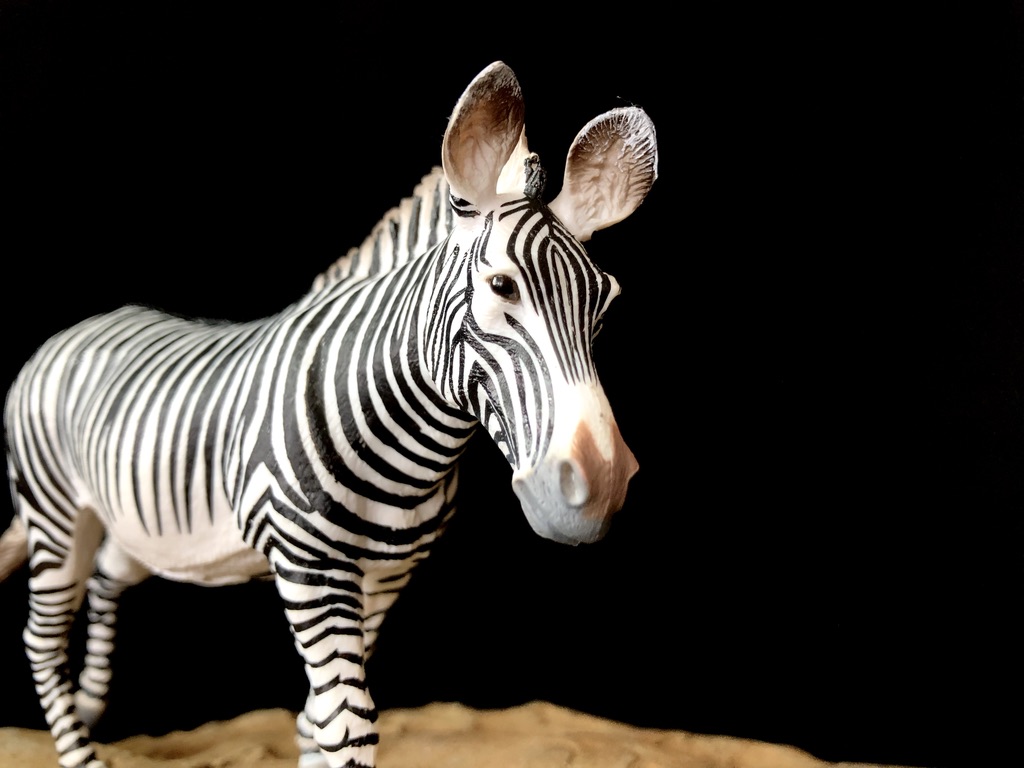
Stripes on zebra follow a vertical orientation as they travel from the back down towards the belly, and in some they start to move towards a more horizontal orientation as it reaches the back end. On Grevy’s, the stripes abruptly change orientation as it reaches the back or rump. Here they start curving towards the back in a tight horizontal fashion that creates a very distinctive pattern.
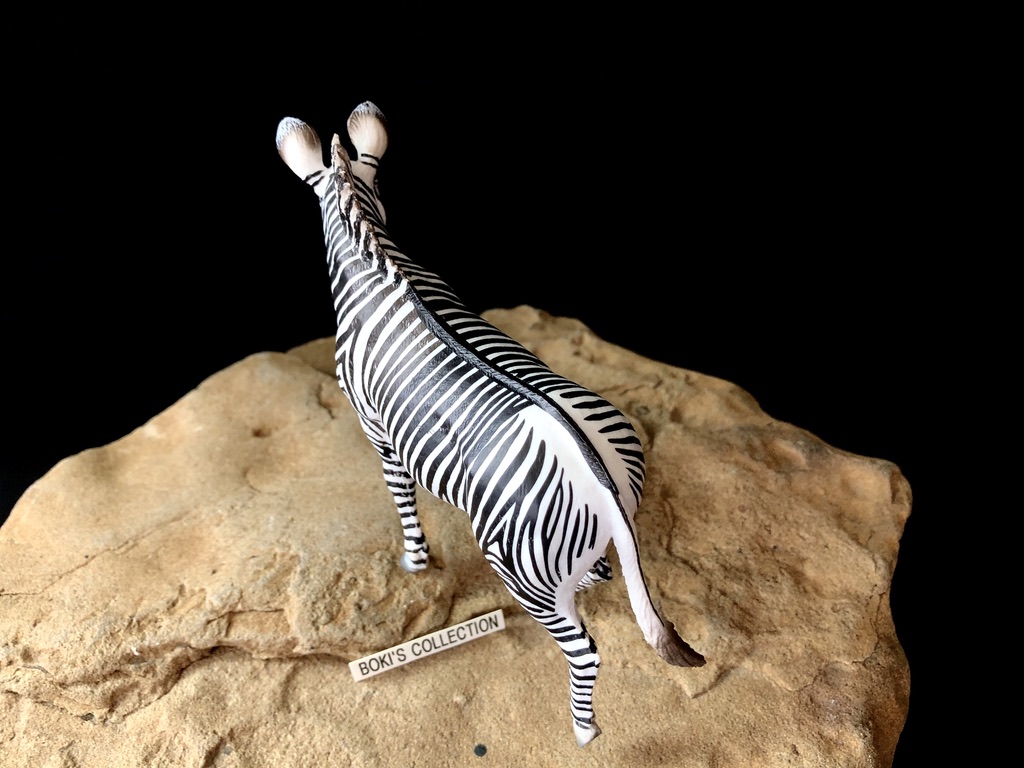
Unfortunately, on the figure, these stripes are not correctly oriented, but instead follow the vertical formation. This is the only big glaring mistake I can find on this otherwise awesome figure, something that can easily be overlooked if you are not familiar with these subtle differences. I’m not sure if this was the case on the prototype as well or if this was done in the factory. In any case, this could be an easy fix by repainting this part if you are adventurous enough try.
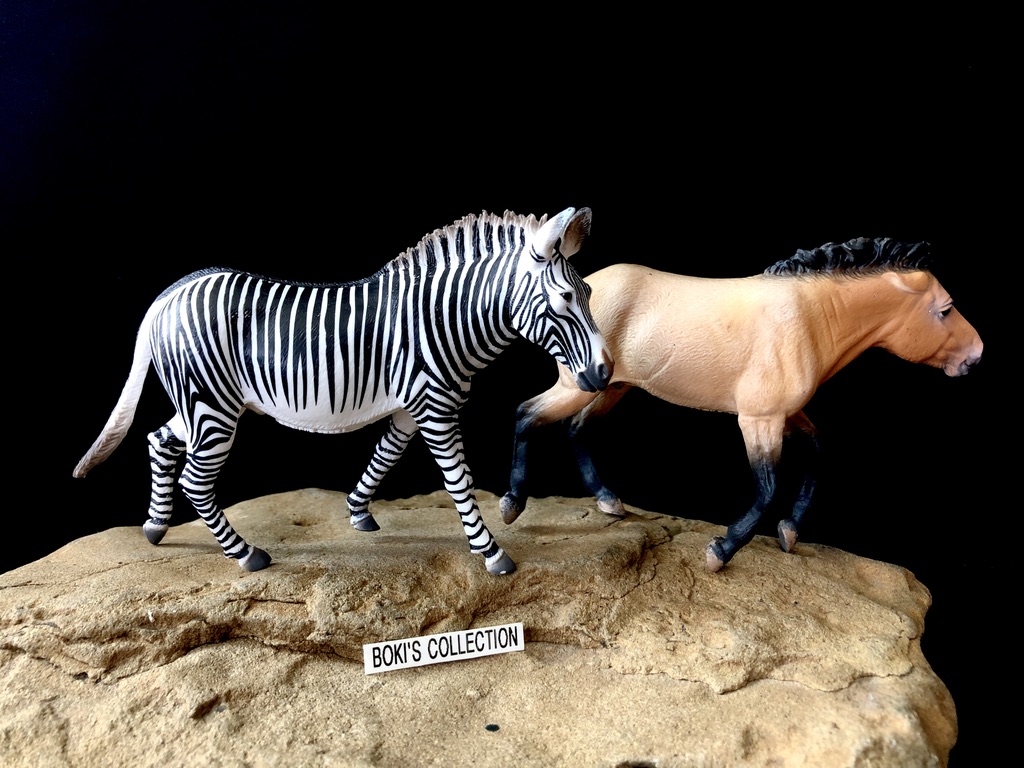
Grevy’s zebra also has a unique head compared to the others. The head is large, more elongated and narrower (it doesn’t have that muscular jaw) than that of the plains or mountain zebras. Its neck is short and thick. The ears are also larger and more rounded compared the other two species. The figure got these characteristics pretty good and when seen side-by-side with the more common species, you can really see the difference. It is great that they made a new sculpt and not just repainted a common zebra. Like all horses, they have mane, but not the long flowing kind. Instead, the mane is short and erect.
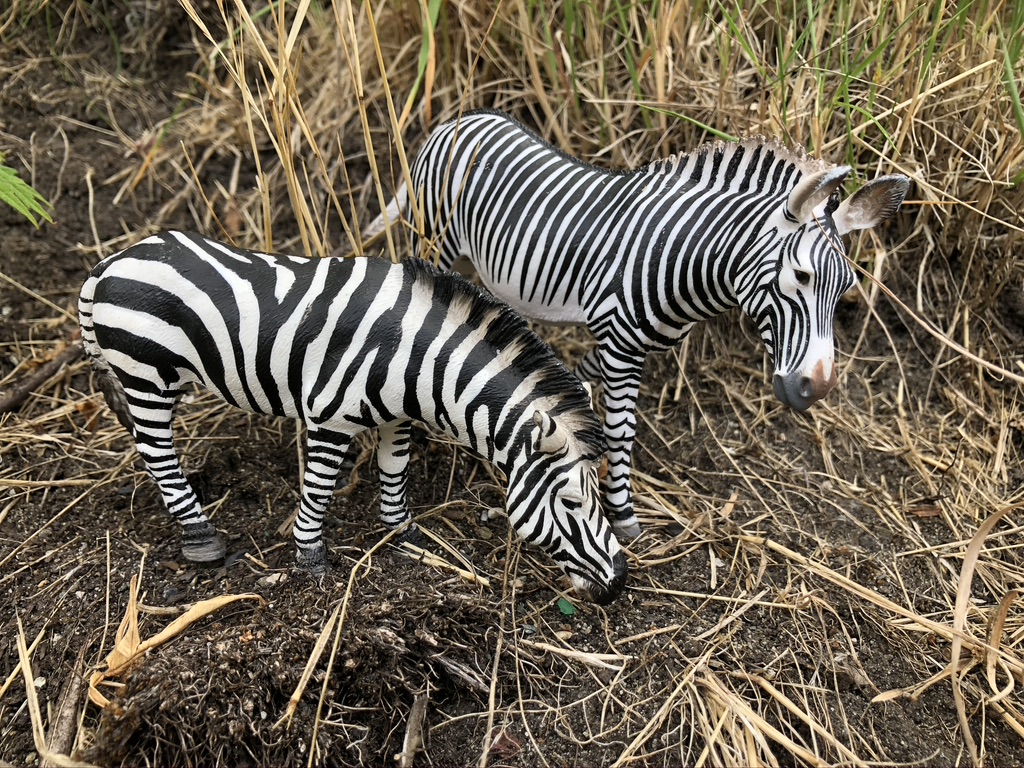
Grevy’s have small range and today is only found in Kenya and Ethiopia; it was extirpated in Somalia and its status unknown in other parts of its former range where it is more likely extinct. They are grassland and savanna animals, but unlike the plains zebra cousin, famous for its spectacular annual migration, Grevy’s are pretty much stationary and do not really move long distances. Where their range overlap, both species can be seen in mixed herds and will, on occasion breed.
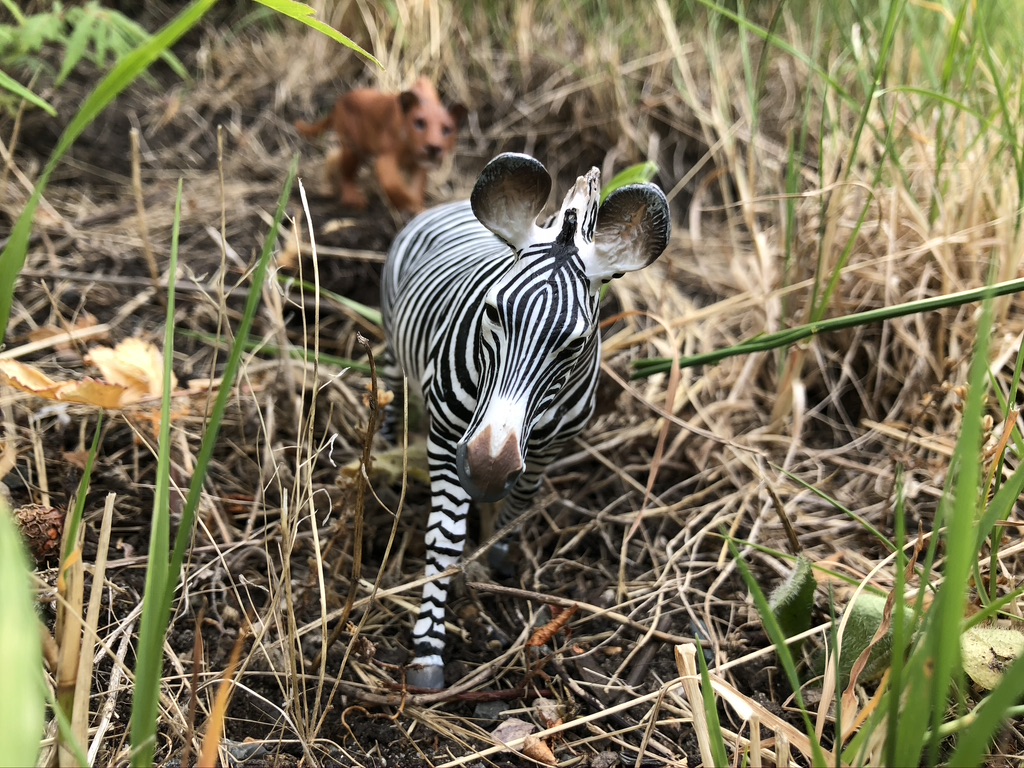
They share the landscape with many other animals including, the top predators like lions and hyenas which are known yo hunt them, although others such as cheetahs, wild dogs, and leopards seem to avoid hunting them.
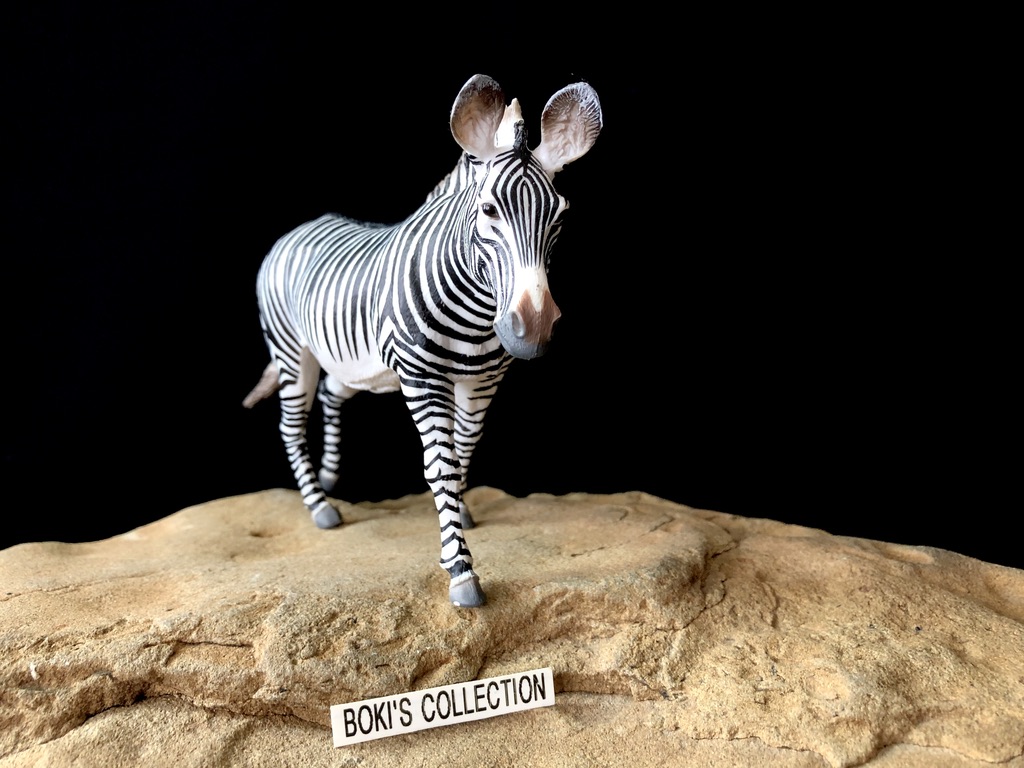
Of all the species of zebras, Grevy’s are the most endangered with a current estimate world population of less than 3,000 animals left in the wild. As expected, loss of habitat, competition with livestock, and spread of disease are some of the biggest threat to its continued survival in the wild. Unfortunately, the majority of the population live outside of protected areas making them even more susceptible to extinction.
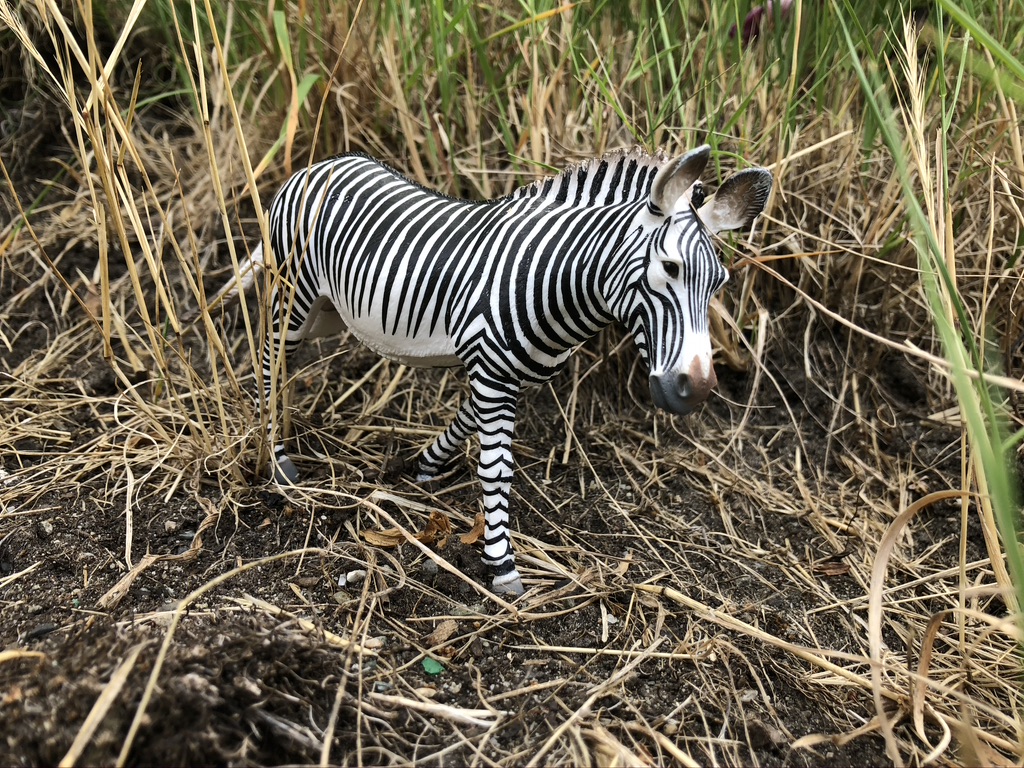
With species such as zebra, whose popularity in the toy industry has resulted in saturation of figures in the market of the more common type, it is refreshing to get a figure that is different. I hope that when the time comes ( we all know it will) for CollectA to make another zebra, that it will be the mountain zebra, another very distinctive looking one due to the presence of a dewlap. It is a figure that is worth adding to any collection that surely will stand out from the herd.
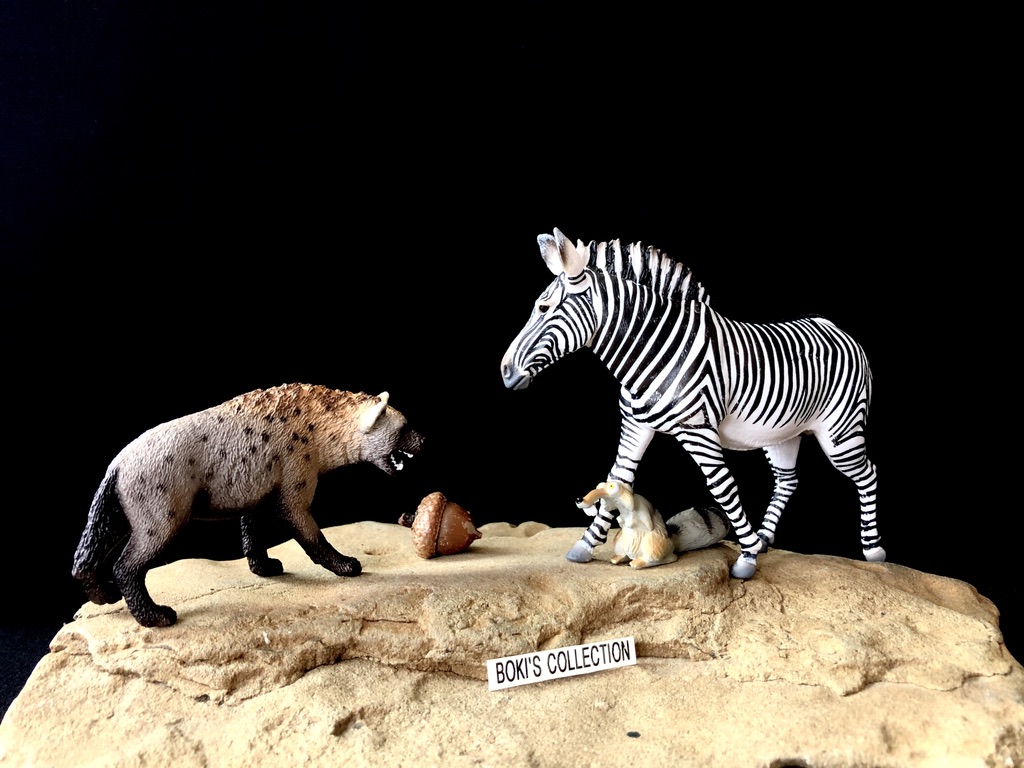
Well, I hope you enjoyed the review, thanks for reading. Until the next one, stay safe and healthy. Cheers!
Disclaimer: links to Ebay and Amazon on the AnimalToyBlog are affiliate links, so we make a small commission if you use them. Thanks for supporting us!




Wonderful review of a wonderful figure. I have this one. I understand the ‘butt stripes’ are not accurate, but it’s a minor set-back